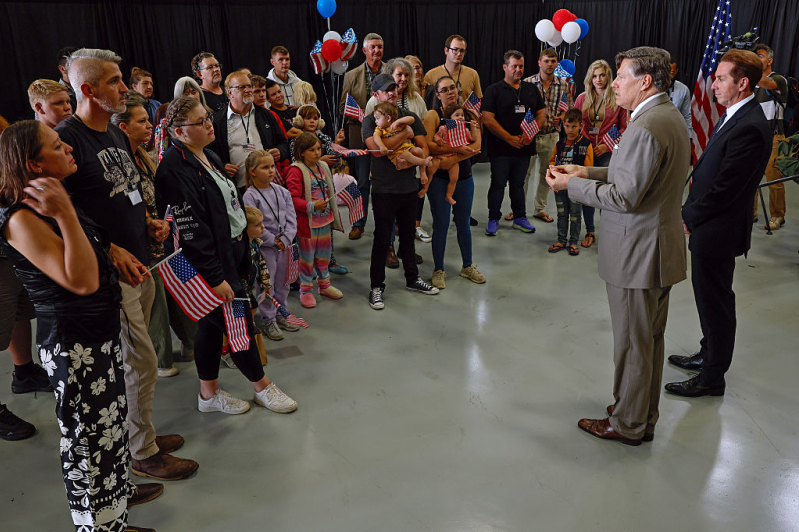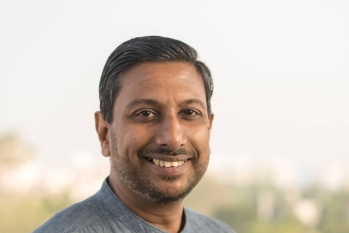
A chartered jet carrying 59 white South Africans arrived in the United States on Monday, marking the first group admitted under a newly created refugee pathway launched by the Trump administration. The arrivals, many of them Afrikaners, were granted entry under claims of “race-based persecution” in South Africa — a move that has triggered significant debate both internationally and within South Africa’s religious community.
Shortly after the U.S. government’s February announcement to halt all aid to South Africa and welcome white South African refugees, more than 400 Christian leaders across South Africa issued a public statement sharply criticizing the narrative underpinning the administration’s policy. The statement, authored by four prominent white Christian leaders, accused U.S. officials of distorting the situation in South Africa and warned that such actions could further destabilize efforts toward justice and reconciliation.
“We unanimously reject these claims,” wrote Dr. Cobus van Wyngaard (University of South Africa and Dutch Reformed Church, Pretoria), Rev. Craig Stewart (St. Peter’s Anglican Church, Mowbray), Dr. Curtis Love (University of South Africa, Johannesburg), and Pastor Sarah Montgomery (Lifespring Community Church, Durban). “The narrative presented by the U.S. government does not reflect the reality of our country and, if anything, serves to heighten existing tensions in South Africa.”
The refugee admissions program, fast-tracked by the Trump administration, has received support from some U.S. officials who say white South African farmers face violence and discrimination, according to reporting by the New York Times. Speaking before departing on a diplomatic trip to the Middle East, President Trump said, “Farmers are being killed. They happen to be white. Whether they are white or Black makes no difference to me. White farmers are being brutally killed, and the land is being confiscated in South Africa.”
At Washington Dulles International Airport, Deputy Secretary of State Christopher Landau and Homeland Security Deputy Secretary Troy Edgar welcomed the new arrivals. “When you have quality seeds, you can put them in foreign soil and they will blossom,” Landau said. “We are excited to welcome you here to our country, where we think you will bloom.”
The group’s refugee applications were approved in under three months—an unusually rapid timeline compared to standard refugee processing, which often takes years. U.S. officials involved in the program confirmed that the cases were expedited as part of a special directive. The prioritization of these applicants has drawn criticism from immigration advocates, who note that thousands of vetted refugees from other parts of the world remain in limbo.
More than 8,000 South Africans reportedly expressed interest in the refugee program. However, critics, including the South African government, say the program lacks credibility and appears politically motivated. “It is most regrettable that it appears that the resettlement of South Africans to the United States under the guise of being ‘refugees’ is entirely politically motivated and designed to question South Africa’s constitutional democracy,” said Foreign Ministry spokesperson Chrispin Phiri.
The public statement from white South African Christian leaders in February coincided with President Trump’s executive order cutting all U.S. government aid to South Africa. The administration cited the recently passed Expropriation Act — which allows, under judicial review, the transfer of land in the public interest without compensation — as evidence that the government was discriminating against white landowners.
But the South African Christian leaders took a sharply different view. “That South Africa has failed to effectively address the racial injustices of Apartheid and Colonialism is obvious,” they wrote. “But one factor is the sustained resistance by many white South Africans to initiatives that seek to meaningfully address the economic and land ownership consequences of these systems of racial oppression.”
The statement warned against both South African and American political figures using race for political gain. “There are South African leaders, especially within the white community, who are using the deplorable actions and statements of the President of the United States of America and his supporters to serve the narrow needs of their local constituencies,” the authors said.
While acknowledging South Africa’s high levels of crime and violence, the statement directly challenged claims of systematic targeting of white citizens.
Police data from 2020 to 2024 recorded 225 murders on farms in South Africa — 53 victims were farmers, typically white, while more than 100 were Black laborers or former workers living on farms, according to media reports.
“The narrative of ‘disproportionate violence’ aimed at white South Africans that President Trump is attempting to push negates the indisputable reality, for anyone living in South Africa, that Black South Africans continue to be subject to the worst excesses of violence and oppression,” the statement read.
The leaders also raised theological concerns about how Christianity is being invoked to justify recent U.S. policies. “We have watched in horror as political rhetoric in the United States of America has also drawn on the Christian faith in ways which dismiss the most basic Christian call to caring for the vulnerable, loving of neighbours, and working for a good society for all,” the authors wrote.
They acknowledged that the Christian faith had historically been used to legitimize colonialism and apartheid and warned against repeating those mistakes. “Justifying such violences in the name of Christianity is something we condemn and reject as leaders of our faith.”
Instead, the leaders called for repentance and a renewed commitment to justice. “As white Christian South Africans, we confess that we have not done enough to rectify the injustices of our colonial and apartheid past. We recommit ourselves to work for redress, restitution and healing.”
They emphasized that land reform — while contentious — is central to the process of making South Africa more equitable. “We know that rectifying historic injustices in land ownership and working beyond this towards undoing immense inequality is a key part of the gospel call for a commitment towards justice in our country.”
The statement concluded with a message of solidarity with Christian leaders in the United States who are also confronting the politicization of faith. “We commit ourselves to pray and stand in solidarity with faith leaders in the United States of America who are called to be a voice for justice and peace in this turbulent time.
Drawing comparisons to the global Christian support for South Africa’s anti-apartheid movement, the authors wrote: “In the same way that churches were called to commit to united work for justice during the dark days of apartheid, we commit to supporting the prophetic church in the USA as it works for justice in the weeks, months, and years to come.”
Their statement, while focused on the implications of recent U.S. actions, served as a broader call to Christian communities worldwide to resist narratives rooted in fear and to pursue justice anchored in both biblical truth and historical accountability.
“This is not a moment for political point-scoring,” the authors concluded, “but a time for repentance, humility, and a renewed commitment to justice and compassion in both our nations.”
The full statement with signatories is available here.






